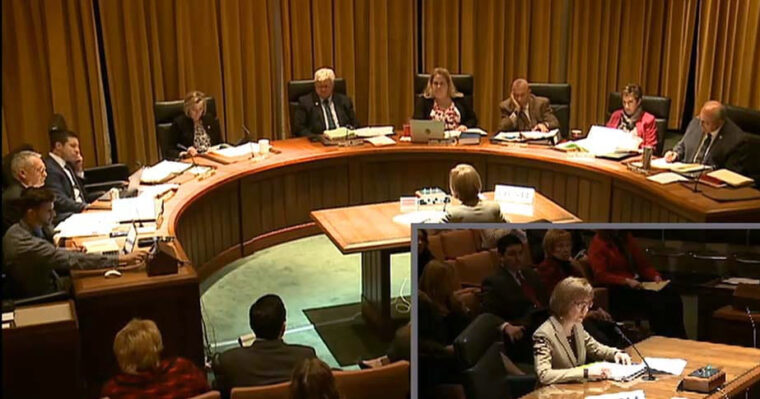Nebraska’s legislature, assisted by research and guidance from Washington University in St. Louis, on May 24 unanimously approved a universal Child Development Account (CDA) policy that will cover every resident born in the state on or after Jan. 1, 2020.
Margaret Clancy, policy director for the Center for Social Development (CSD) at the Brown School at Washington University in St. Louis, advised Nebraska state treasurer John Murante on desirable CDA policy features, provided CDA research results and testified on provisions.

Championed by Murante and a bipartisan coalition of senators, the policy features automatic, universal enrollment in the new Meadowlark Program, which will provide a Nebraska 529 college savings account with a deposit for all newborn Cornhuskers.
Funded equally through private contributions and state sources (not general fund dollars), Meadowlark is designed to broaden access to post-secondary education.
“State legislators are creating a structure and paving the way for all Nebraska children to succeed, perhaps particularly those from disadvantaged families,” said Clancy, one of the nation’s leading experts on CDAs. “Nebraska’s legislation provides enormous potential to engage corporations, nonprofits, educators, communities and state resident families in building assets for children’s education.”
Nebraska is one of several states that she and others at the CSD have advised on CDA policy.
Statewide CDAs have been implemented in Pennsylvania, Maine, Nevada, Rhode Island, Connecticut and Massachusetts, and legislation is pending in several other states, including Illinois and California.
Approximately 26,600 Nebraskans are born each year, and the deposits for these infants will grow until they later access the funds for college, trade school or other post-secondary education in Nebraska. If not spent before the recipient turns 30, earmarked Meadowlark assets will be used for future Nebraska children.
The approved legislation, which Gov. Pete Ricketts is expected to sign, includes several other noteworthy provisions for Nebraska’s 529 plan. The Employer Matching Contribution Incentive Program offers incentives for matching workers’ contributions, and the Low-Income Matching Scholarship Program allows families with income below 200% of the federal poverty level to apply for $2 for every $1 contributed. Families making between 200% and 250% of the poverty level could receive a dollar-for-dollar match.



